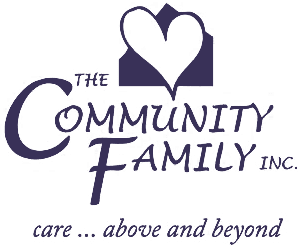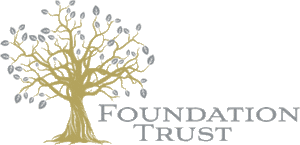HIPAA
Adult Day Health Participants’ Bill of Rights
Be cared for in a safe and humane environment free from abuse and neglect.
Be treated with consideration and respect and with due recognition of personal dignity and individuality.
Present grievances and recommend changes in policies, procedures and services without restraint, interferences, coercion, discrimination, or reprisal.
Upon request, obtain from the center, the names of all staff involved in his/her care.
Confidentiality of all records, information and communications to the extent provided by law.
Obtain a copy of all regulations and rules pertaining to adult day health programs.
To receive an explanation of the relationship, if any, between the Program and any other healthcare or educational institution involved in participant care or treatment.
Participant Rights Under HIPAA
The right to access all records within 24 hours and to purchase copies of the record within 2 business days.
The right to request a list of where your health information has been released.
The right to request that your health information to be restricted from certain uses or disclosures.
The right to file a complaint with the Department of Health and Human Services.
Notification through the “Notice of Privacy and Practices” of how your information will be used and your rights under HIPAA.
You are entitled to a full copy of your rights under HIPAA. To request a copy, please contact the program director.
USDA Non-Discrimination Statement
Child and Adult Care Food Program
Guidance for Usage:
The Child & Adult Care Food Program (CACFP) is a federally funded program which requires the inclusion of the complete USDA non-discrimination statement, or inclusion of the short version of the nondiscrimination statement, on all program forms and informational materials. The purpose of the statement is to inform applicants, participants, and potentially eligible persons of the program availability, program rights and responsibilities, the policy of non-discrimination, and the procedure for filing a complaint.
The full non-discrimination statement must be used in its’ entirety and in print size no smaller than the material’s text font. The statement must be presented in the same format (using the same spacing) as below. The usage requirements in FNS Instruction 113-1 have not changed-only the verbiage. If the material is too small to permit the full statement to be included, the material will at a minimum include the statement, in print size no smaller than the material’s text font, that “This institution is an equal opportunity provider.” Please note that the use of the shorter version is the exception, not the rule.
Use of printed existing forms (with the old statement) is permitted. New forms and publications must be printed with the updated statement. Websites, online applications, IT systems and social media should be updated immediately.
USDA Non-Discrimination Statement:
In accordance with Federal civil rights law and U.S. Department of Agriculture (USDA) civil rights requlations and policies, the USDA, its Agencies, offices, and employees, and institutions participating in or administering USDA programs are prohibited from discriminating based on race, color, national origin, sex, disability, age, or reprisal or retaliation for prior civil rights activity in any program or activity conducted or funded by USDA.
Persons with disabilities who require alternative means of communication for program information (e.g. Braille, large print, audiotape, American Sign Language, etc.), should contact the Agency (State or local) where they applied for benefits. Individuals who are deaf, hard of hearing or have speech disabilities may contact USDA through the Federal Relay Service at (800) 877-8339. Additionally, program information may be made available in languages other than English.
To file a program complaint of discrimination, complete the USDA Program Discrimination Complaint Form, (AD-3027) found online at http://www.ascr.usda.gov/complaint_filing_cust.html, and at any USDA office, or write a letter addressed to USDA and provide in the letter all of the information requested in the form. To request a copy of the complaint form, call (866) 632-9992. Submit your completed form or letter to USDA by:
1)Mail: U.S Deparrment of Agriculture, Office of the Assistant Secretary for Civil Rights, 1400 Independence Avenue SW, Washingon, DC 20250-9410;
2)Fax: (202)-690-7442; or
3)Email: program.intake@usda.gov
This institution is an equal opportunity provider.
Call any of our four adult day health centers to schedule a tour.
Locations
OUR TESTIMONIALS
“Community Family made tolerable the unbearable tragedy of Alzheimer’s. Your contribution to the community is critical, but your spirits and upbeat attitude are even more amazing. We will never forget you; your example is living proof of a living love.”
“To bring Mom in and watch you greet her with such open, loving arms, then graciously lead her into the ‘club,’ was awe inspiring. You do your jobs with such devotion, love and creativity!”
“The center was nothing less than extraordinary. You are all thoughtful, compassionate people. You treated my husband with dignity and respect and allowed him to maintain a level of normalcy, which would not have been possible without the daily care you provided him. Your compassion extended to me as well, giving me peace of mind for a few hours daily knowing that he was receiving excellent care.”
“In life, there are many unpleasant things to endure. Luckily, for the people faced with these problems, there are often family members to help them through. Other times, help comes from another form of “family.” The Community Family staff is, without a doubt, there to help and forever remains an extension of our [own] family. As a community, we should appreciate a program that truly is perfectly named, for the staff at The Community Family are extraordinary extensions of so many families.”
“You all treated Nana with such love and care, I never had to worry when she went to the ‘club.’ It takes strong, loving, caring and empathetic people to do what you do. Thank you all so much for your support over the years. You made my Nana smile, which means more to me than you know.”
“My family and I cannot thank you enough for the time, patience and understanding you’ve shown to our family and our mother. All of you have helped to preserve our mother’s pride and dignity while she dealt with such a devastating disease.”


